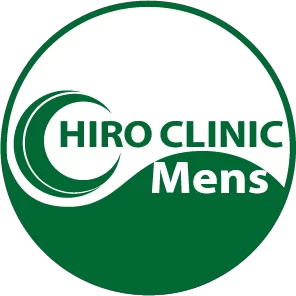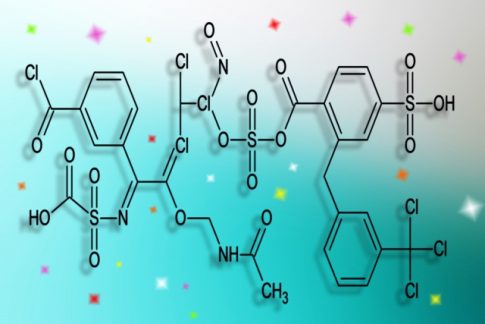AGA (androgenetic alopecia) is a serious problem for many men. However, in addition to appropriate treatment, there are many factors that can be improved in daily life. One of the most important factors is the quality of sleep. In this article, we will explain in detail the relationship between AGA and sleep quality and provide advice on how to get good quality sleep.
What is AGA?
First, let’s review the basics of AGA (Androgenetic Alopecia). AGA, also known as androgenetic alopecia, is a progressive hair loss caused by genetics and the influence of male hormones. In particular, testosterone is converted to DHT (dihydrotestosterone), which damages hair roots and inhibits hair growth. This causes the hair to gradually thin and eventually fall out.
Sleep quality and hair health
Sleep is directly linked to your overall health, and the health of your hair is no exception. During sleep, your body repairs and regenerates, and this includes hair growth. Not getting good quality sleep can have the following effects:
1. Hormone imbalance
Lack of sleep increases the secretion of the stress hormone cortisol, which disrupts the balance of male hormones. This can lead to an increase in DHT, which can worsen AGA.
2. Decreased secretion of growth hormone
Growth hormone plays an important role in hair growth and repair. This hormone is primarily secreted during deep sleep, so sleep deprivation interferes with growth hormone secretion.
3. Poor blood circulation
Lack of sleep worsens blood circulation, reducing blood flow to the scalp. This results in insufficient nutritional supply to the hair roots and inhibits hair growth.

Advice for getting good quality sleep
Here are some tips for getting a good night’s sleep to help slow the progression of AGA and maintain hair health.
1. Maintain a regular life rhythm
- By going to bed and waking up at the same time every day, you adjust your body clock and promote deep sleep. This contributes to stabilizing hormonal balance.
2. Create a relaxing environment
- Make sure your bedroom is quiet, dark, and at a comfortable temperature. It’s also a good idea to create a routine to help you relax before bed. For example, light stretching, meditation, and taking a warm bath can help.
3. Avoid caffeine and alcohol
- Caffeine and alcohol can reduce the quality of your sleep. Especially avoid taking it before bedtime.
4. Incorporate moderate exercise
- Regular exercise reduces stress and improves sleep quality. However, avoid strenuous exercise right before bed.
5. Reduce screen time
- Looking at a smartphone or computer screen before bed causes blue light to interfere with melatonin secretion, reducing the quality of your sleep. It is recommended that you avoid looking at screens for an hour before bed.
Combination of sleep and AGA treatment
Getting good quality sleep is essential to maximizing the effects of AGA treatment. Below, we will introduce AGA treatment methods that can be expected to be effective when used in conjunction with sleep.
1. Oral medications (finasteride, dutasteride)
- Oral medications that suppress DHT production are the basis of AGA treatment. By combining regular dosing with good quality sleep, the effects will last.
2. Topical medicine (minoxidil)
- Minoxidil promotes blood circulation and nourishes hair roots, and its effectiveness can be enhanced with proper use and good sleep.
3. Scalp massage
- A scalp massage that improves blood circulation has a relaxing effect and improves the quality of your sleep when performed before bedtime.
4. Nutritional supplements
- Taking supplements containing vitamins and minerals that support hair health can also help improve your sleep quality.
Long-term effects of sleep deprivation on AGA
Continued sleep deprivation not only accelerates the progression of AGA, but can also cause other health problems.
1. Chronic stress
- Lack of sleep increases stress and disrupts hormonal balance. If this continues for a long period of time, it will have a negative impact not only on the progression of AGA but also on your mental and physical health.
2. Decreased immunity
- Lack of sleep weakens your immune system and makes you more susceptible to infections. Maintaining immunity is important to maintain healthy hair.
3. Impact on mental health
- Sleep deprivation is known to increase the risk of depression and anxiety. Maintaining mental health is also important in AGA treatment.
Summary
By understanding the relationship between AGA and sleep quality, you can take effective measures to suppress the progression of hair thinning. Good sleep has a huge impact on hair health, including maintaining hormonal balance, promoting growth hormone secretion, and improving blood circulation. By following the advice to improve your sleep quality and combining it with AGA treatment, you will achieve better results.
AGA treatment at Hiro Clinic
AGA (Androgenetic Alopecia) is a disease called male pattern baldness, which progresses if left untreated, so early treatment is necessary. The causes of AGA vary depending on the individual, but it is not a disease that cannot be treated. Hiro Clinic uses cutting-edge regenerative medicine technology to treat AGA. Our specialized doctors will suggest appropriate treatment methods tailored to each individual and will do their best to support your concerns.









